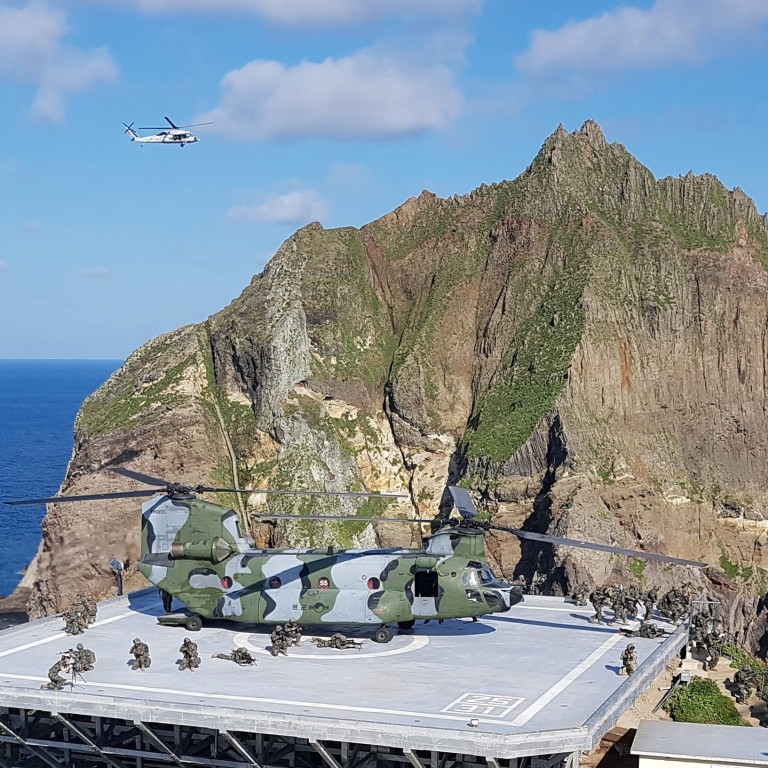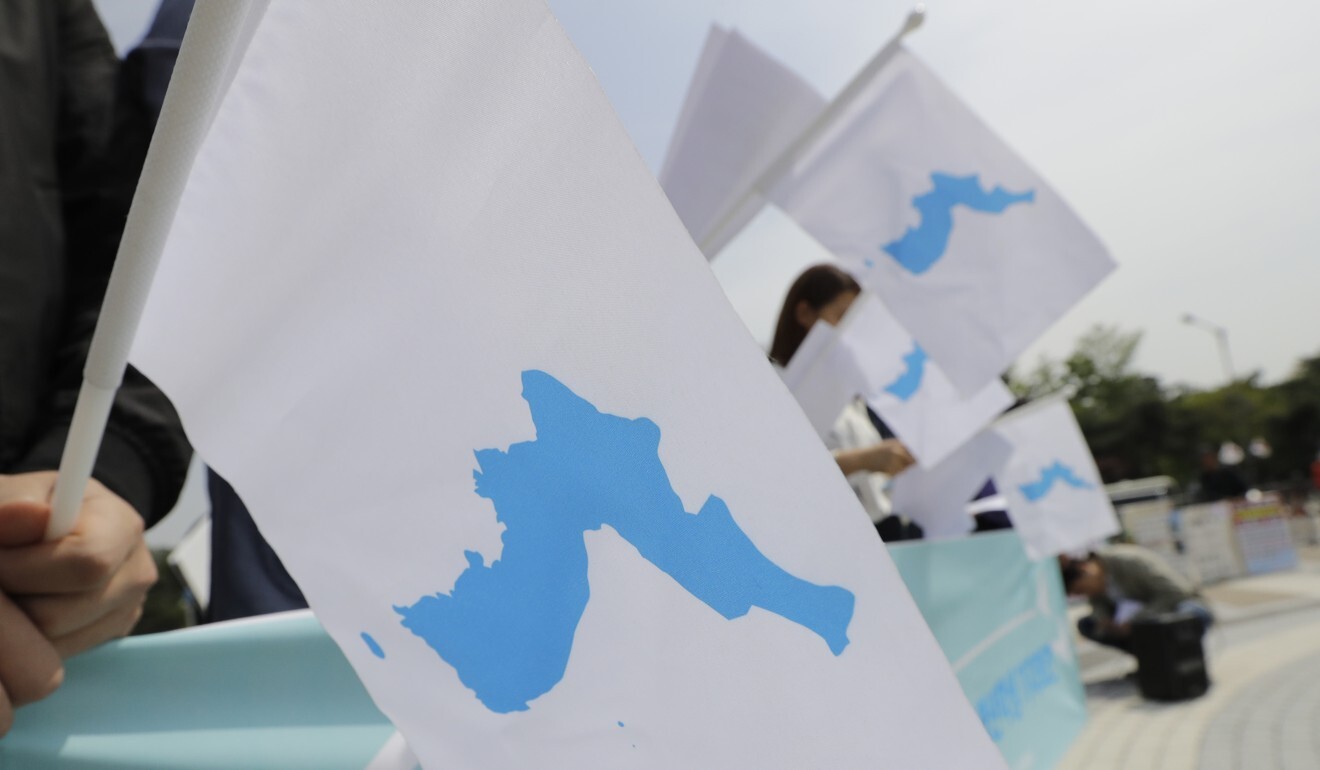
Tokyo Olympics: calls grow in South Korea to boycott Games over island dispute with Japan
- The South Korea-controlled Dokdo islets, which Japan claims and calls Takeshima, are marked with a blurred dot on the map on the IOC’s website
- Seoul’s foreign ministry has been calling for the islets’ removal from the torch relay map since July 2019, but Japan’s Olympics organisers have so far refused
No such request has yet been made of Tokyo, however, with an IOC representative referring the issue to Japan’s Olympics organising committee when questioned by reporters.
Seoul’s foreign ministry has been calling for the islets’ removal from the torch relay map since July 2019, but Japan’s Olympics organisers have so far refused – opting instead to make the dot indicating the islets less visible, a move slammed as “trickery” by Korean media.

At a press conference on Friday, Chief Cabinet Secretary Katsunobu Kato, the government’s top spokesman, repeated Tokyo’s claim that Takeshima is Japanese territory based on historical fact.
In its statement, the Democratic Party said the Japanese government was being “obstinate in refusing to correct the map”, adding that “we won’t tolerate treachery to lay claim to Dokdo by taking advantage of the Olympics”.
The IOC’s refusal to intervene “marks a reversal in its stance” it took in 2018 “when it said it was inappropriate to link a political issue with sports”, the statement said. “It is now undermining its own image as an international organisation by taking different positions on the same issue.”
Seoul will mobilise “all means available” to ensure that the map is changed, it added, without specifying whether a boycott – as advocated by former prime ministers and presidential hopefuls Lee Nak-yeon and Chung Se-kyun – was being considered.
Asia’s territorial disputes: border clashes in the sea, air and land
Foreign Minister Chung Eui-yong said on Friday that Japan’s “wrong behaviour” would not be tolerated and a strong protest had been lodged with Tokyo over the matter.
Earlier calls for an Olympics boycott in response to these disputes and Japan’s seeming inability to contain Covid-19 within its borders were not heeded out of “respect to the Olympic value of promoting harmony”, the Korea Times said in an editorial, while warning that “unless Japan corrects the map, anger among the Korean people will likely continue to grow further”.
The two countries should come to an agreement on … how to mark the islets on maps used at international events. Otherwise, they will continue to be hounded by this issue
Ha Jong-moon, a professor at Hanshin University who specialises in Japan studies, said: “The two countries should come to an agreement on protocols about how to mark the islets on maps used at international events. Otherwise, they will continue to be hounded by this issue.”
Some South Korean internet users have backed the calls for a boycott, saying that taking part in the Games would be tantamount to “trading part of our territory for Olympic medals” and “handing Dokdo to Japan”.
In addition to measures such as banning loud cheering and high-fives, the Yomiuri newspaper reported on Monday that Tokyo was considering whether spectators should be required to show negative Covid-19 test results or vaccination records before attending an Olympic event.
Is Japan delaying its Olympics day of reckoning amid torrent of Covid-19 warnings?
Japan on Friday extended a state of emergency in Tokyo and other areas to June 20. The country has seen a record number of Covid-19 patients in critical condition in recent days, even as the pace of new infections has slowed.
Additional reporting by Reuters

